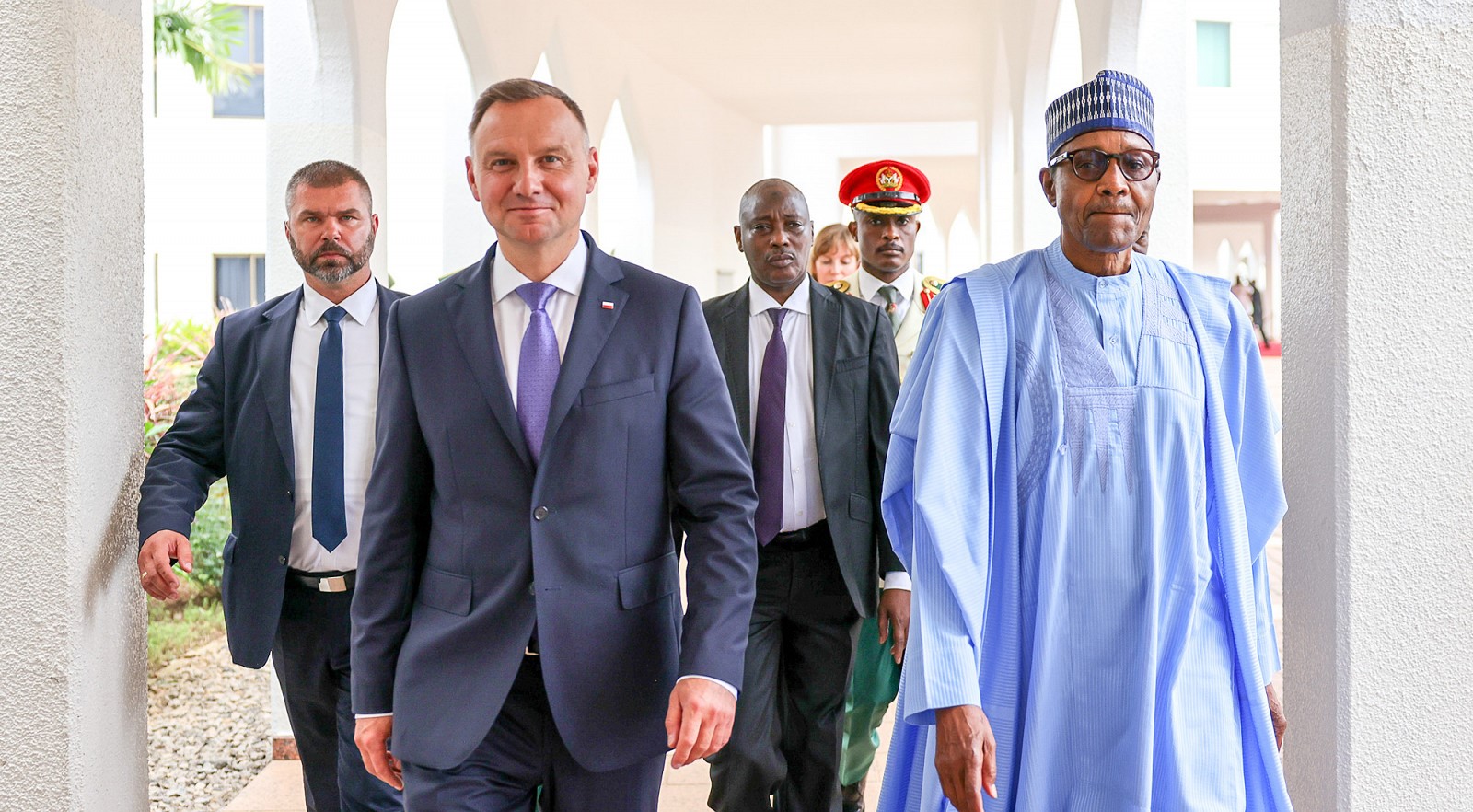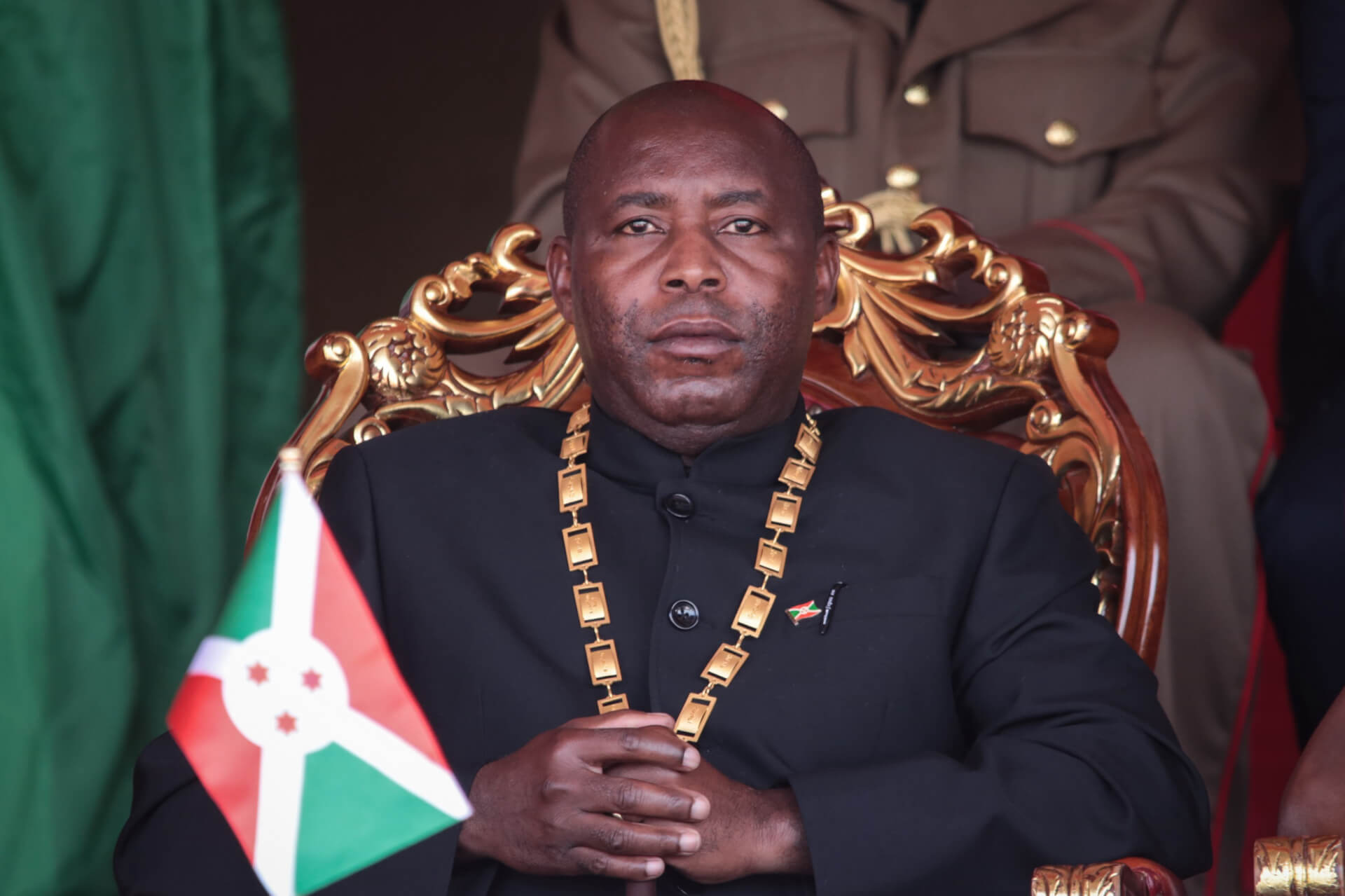South Asia
The Pakistani Federal Investigation Agency’s investigation found 52 suspicious transactions in former ruling party Pakistan Tehreek-e-Insaf’s bank account. The flagged transactions include two withdrawals worth Rs. 8 million ($36,000) by former Prime Minister Imran Khan in March 2013. [The News International]
Indian Prime Minister Narendra Modi virtually participated in the Eastern Economic Forum 2022 in Vladivostok at the invitation of his Russian counterpart Vladimir Putin. He celebrated India’s enhanced cooperation with the Russian Far East since the announcement of his Act Far-East policy. He said that India and Russia can expand cooperation in connectivity, Artic issues, energy, and pharmaceuticals. [Prime Minister of India]
Central Asia and the Caucasus
On Wednesday, Armenian Prime Minister Nikol Pashinyan met with Russian President Vladimir Putin in Vladivostok on the sidelines of the 7th Eastern Economic Forum. The pair discussed a wide range of topics, including improving trade, security, and cultural ties. Pashinyan praised the role of Russian peacekeepers in preserving the peace in Nagorno-Karabakh. “Russia is Armenia’s closest partner and strategic ally,” he said. [Armen Press]
Azerbaijan and Turkey have signed an agreement to jointly manufacture defence products, Azerbaijani Defence Industry minister Madat Guliev announced on Wednesday. Noting the highly developed nature of Turkey’s defence industry, Guliev said the deal would boost Azerbaijan’s ability to improve its domestic weapons manufacturing capability, including the production of drones. [Azer News]
East and Southeast Asia
United Kingdom (UK)-based watchdog Burma Human Rights Network (BHRN) said the junta regime has killed 217 political prisoners during interrogations since the February 2021 coup. It noted that most of the victims were members of the National League for Democracy (NLD) and the People’s Defence Force (PDF). “Some of the PDF members were killed on arrival, while many NLD members were killed after a period of torture. The actual numbers could be higher than our list indicates,” Kyaw Win, the director of the group said. [Myanmar Now]
Chinese authorities have maintained strict COVID-19 lockdown measures in Chengdu despite a 6.8 magnitude earthquake that has killed at least 74 people in the 21-million-strong city. The decision to bar residents from evacuating generated huge public backlash on social media, on which users have posted videos of security guards in PPE kits refusing to allow citizens to exit their compounds. [The Independent]
Europe
In her first parliamentary appearance since being appointed as the British prime minister, opposition leaders questioned Liz Truss about her bailout plan for consumers and businesses amid surging energy prices. Truss responded that she would focus on “growing the economy” and reassured that she would not introduce a “windfall tax.” [Politico]
The European Union has suggested introducing a price cap on Russian gas to disallow Moscow from weaponising gas delivery to oppose Western sanctions. In response, Russian President Vladimir Putin threatened to restrict all energy exports from Russia. [Al Jazeera]
In a meeting with her Czech counterpart Pavel Blažek and Czech Minister of EU Affairs Mikuláš Bek in Prague on Tuesday, Hungarian Minister of Justice Judit Varga stressed that Hungary would not support any measures from the European Union that increase inflation, energy prices, and the “already very heavy burden of sanctions.” [Hungary Today]
In an article co-written by Ukrainian lawmaker Mykhailo Zabrodskyi and the Ukrainian army’s commander in chief Valeriy Zaluzhnyi for Ukrinform on Wednesday, Zaluzhnyi claimed responsibility for the attacks on Russian air bases in Crimea, including the Saky airfield, which took 10 Russian fighter jets “out of action.” [Reuters]
Latin America and the Caribbean
Hundreds of students protested in Chile on Wednesday to demand reforms in the education sector, three days after the draft constitution was overwhelmingly rejected in a referendum. Although largely peaceful, the demonstrations disrupted metro services. Santiago’s metro system announced temporary suspensions at more than a dozen stations owing to “student-generated disorders.” [Reuters]
On Wednesday, Brazilian President Jair Bolsonaro led a re-election campaign during the country’s 200th Independence Day celebrations in Brasilia, calling on his supporters to march in his support. He claimed that his opponent Lula Da Silva’s lead in polls is “a lie,” declaring, “We need to wake up from the lethargy, from the lies, the pretty words but also from the cheating of our population.” Lula condemned Bolsonaro’s personal attacks and accused him of degrading the national day “as a political campaign tool.” [BBC]

Middle East and North Africa (MENA)
Israeli Prime Minister Yair Lapid on Wednesday rejected the United States’ call to review its live fire policy following the shooting of Palestinian-American journalist Shireen Abu Akleh in May. “No one will dictate our live-fire instructions to us when we are fighting for our lives,” Lapid said. The US suggested the reform a day after Israel released a report concluding that an Israeli soldier likely shot Abu Akleh. [Jerusalem Post]
Iran has enough enriched near weapons-grade uranium to produce a nuclear weapon within three to four weeks, the International Atomic Energy Agency (IAEA) reported on Wednesday. The report said Iran has a large stockpile of 60% enriched uranium to produce the minimum weapons-grade level of 25kg of 90% enriched uranium. [Reuters]
North America
United States Vice President Kamala Harris will visit Japan and South Korea from September 25 to September 29 to highlight the “strength” of Washington’s alliances with the two nations. In Japan, she will lead a Presidential Delegation to attend the state funeral of former Japanese Prime Minister Shinzo Abe to “underscore the importance of his leadership in championing the alliance between the United States and Japan and advancing a free and open Indo-Pacific.” [The White House]
On Wednesday, the Royal Canadian Mounted Police (RCMP) said the second suspect in the recent stabbing rampage in Saskatchewan over the weekend, which killed 10 and left 18 injured, died shortly after he was arrested due to “medical distress.” The RCMP did not find a motive for the attacks. [CBC News]
Oceania
China’s ambassador to Australia, Xiao Qian, said the leaders of the two countries should meet without “preconditions.” “I would like to see we have favourable atmosphere created so that when the time comes, when the – not preconditions – but conditions are ready, when there is really a wish and will from both sides, I would love to see a top-level meeting between the two countries,” he told ABC. “Nobody should set a precondition for the other side,” Xiao declared. [The Guardian]
New Zealand Foreign Affairs Minister Nanaia Mahuta announced that the country will invest $30 million in the Pacific over the next five years to help improve the region’s access to contraceptives and reproductive health services. “The investment recognises the need for safe, locally driven approaches to healthcare, and it supports partners’ ambitions and strategies,” she said. [Stuff]
Sub-Saharan Africa
On Wednesday, Nigerian President Muhammadu Buhari signed a deal with his Polish counterpart Andrzej Duda to supply liquified natural gas (LNG) to Poland to assuage its “very serious energy crisis.” Duda noted that “Nigeria is indeed very wealthy” in energy supplies, and a bilateral exchange would “contribute to the development of economic relations” between the two nations. Meanwhile, Nigerian Oil Minister Timipre Sylva also pledged to finalise the Trans-Sahara Gas Pipeline to increase LNG exports to Europe by next winter. [The Africa Report, Reuters]
Days after warning of a coup to depose him, President Evariste Ndayishimiye on Wednesday appointed Security Minister General Gervais Ndirakobuca as the country’s new prime minister, replacing Alain Guillaume Bunyoni. Parliamentarians backed the appointment with 113 out of 162 votes in favour. Ndirakobuca is known for his role during the 1993 civil war and was even sanctioned by the European Union and the United States in 2015 for “silencing those opposed” to then-President Pierre Nkurunziza. [Africanews]

